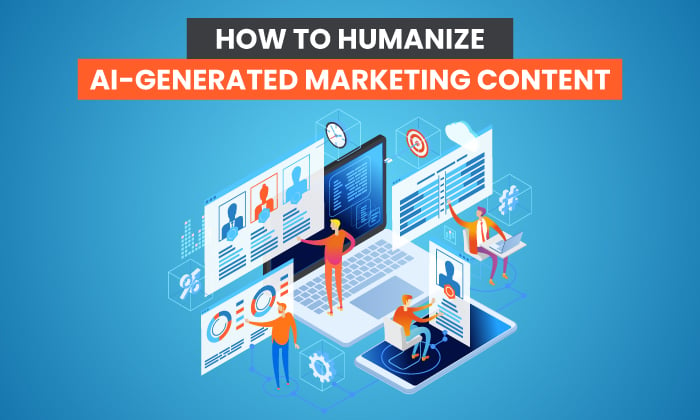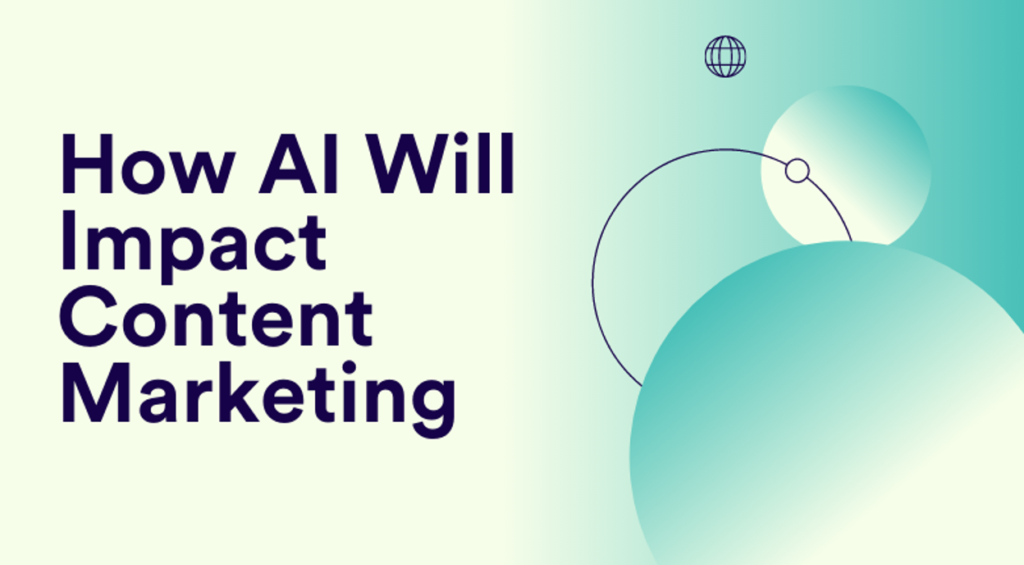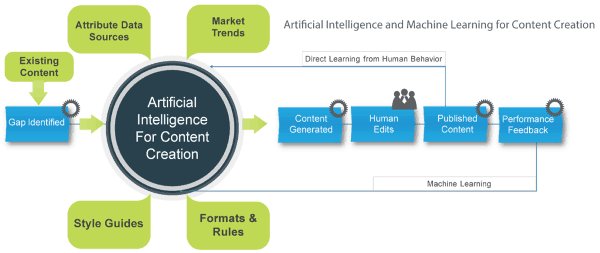Introduction
Unlocking the potential of AI-based content marketing holds the key to not only making money but also building a steady stream of passive income. As a marketer, I have witnessed how AI has revolutionized the way we create and distribute content, enabling us to reach wider audiences and generate higher engagement. In this post, I will dive into the world of AI-based content marketing, exploring its role, evolution, challenges, and the immense potential it offers.
Understanding AI and its role in marketing
Artificial Intelligence, or AI, refers to the capability of machines to imitate human intelligence and perform tasks traditionally done by humans. In the realm of marketing, AI revolutionizes content creation, curation, and distribution. By leveraging AI-powered tools, marketers can now automate various aspects of their content strategy, such as generating personalized recommendations, optimizing SEO, and scaling content production.
The evolution of content marketing and its challenges
Content marketing has come a long way, from traditional advertising methods to a strategic approach focused on creating valuable and relevant content for target audiences. However, the traditional challenges of content marketing, such as generating high-quality content at scale, identifying audience preferences, and maximizing engagement, still persist.
The potential of AI-based content marketing
AI-based content marketing offers immense potential. By analyzing vast amounts of data, AI algorithms can identify patterns and trends, enabling marketers to make data-driven decisions to optimize their content strategies. AI can also personalize content delivery, tailoring it to individual user preferences, resulting in higher engagement and conversion rates. With AI, content marketers can unlock untapped potential, streamline their workflows, and achieve exceptional results.
So, let’s dive into the world of AI-based content marketing and discover the endless opportunities it presents for marketers like me who strive to make the most of their content efforts and unlock their true potential.

Benefits of AI-Based Content Marketing
Artificial Intelligence (AI) has revolutionized various industries, and content marketing is no exception. With the help of AI, businesses can unlock their potential and maximize their profits. In this post, I will discuss the numerous benefits of AI-based content marketing and how it can help you create a sustainable source of income.
Increased personalization and targeting
AI algorithms enable businesses to analyze vast amounts of data, helping them understand their audiences better than ever before. By leveraging AI-based content marketing, you can deliver personalized messages to individual customers, increasing the likelihood of conversion. These personalized experiences create a stronger connection with your audience, resulting in higher engagement levels.
Enhanced customer experience and engagement
AI technologies allow you to provide seamless customer experiences by automating personalized interactions across various touchpoints. Chatbots, for example, can streamline customer support and provide instant responses to queries. Additionally, AI-powered recommendation systems can suggest relevant content to your users, keeping them engaged and interested.
Efficient content creation and curation
AI tools can assist in content creation by generating personalized and compelling content based on data analysis. They can also curate content automatically, identifying the most relevant and valuable pieces for your target audience. This streamlines the content creation process and saves valuable time and resources.
Improved data analysis and insights
With AI, you can analyze vast volumes of data to gain valuable insights about your audience’s preferences and behaviors. This enables you to create data-driven content strategies and make informed decisions that maximize your marketing efforts. AI algorithms can uncover patterns and trends that humans may miss, giving you a competitive edge in the market.
AI-based content marketing offers numerous benefits, including personalized targeting, enhanced customer experiences, efficient content creation, and improved data analysis. By harnessing the power of AI, you can unlock your potential and drive significant results in your content marketing efforts. So, it’s time to embrace AI and take your content marketing to new heights.

Key Components of AI-Based Content Marketing
As an AI enthusiast and content marketer, I firmly believe that the fusion of AI and content marketing has the ability to unlock immense potential and revolutionize the way businesses connect with their audience. By leveraging cutting-edge technologies, such as Natural Language Processing and Machine Learning, AI-based content marketing opens up a world of possibilities for boosting engagement, driving conversions, and ultimately, generating revenue.
Natural Language Processing and Generation
Natural Language Processing (NLP) empowers content marketers to analyze vast amounts of data and gain valuable insights into consumer behavior, preferences, and sentiment. By understanding the nuances of language, businesses can tailor their content to meet the specific needs and desires of their target audience. Additionally, AI-powered content generation allows marketers to automate the creation of personalized content at scale, saving valuable time and resources.
Machine Learning and Predictive Analytics
Machine Learning algorithms can analyze historical data and identify patterns, enabling businesses to predict future trends and consumer behavior. With this information, content marketers can optimize their strategies and deliver the right message, to the right person, at the right time. Machine Learning also enables dynamic content personalization, ensuring that each customer receives a unique and relevant experience.
Automated Content Distribution and Optimization
Gone are the days of manual content distribution. AI-based automation technologies offer businesses the ability to intelligently distribute and optimize content across various platforms and channels. By analyzing data in real-time, marketers can identify the most effective distribution channels, optimize content performance, and maximize reach and engagement.
Visual and Voice Recognition Technologies
Visual and voice recognition technologies have transformed the way consumers interact with content. From personalized recommendations to visual search, AI-based content marketing leverages these technologies to provide a seamless and interactive experience for users. By incorporating visual and voice recognition, businesses can enhance engagement, improve user experience, and ultimately drive conversions.
AI-based content marketing is a game-changer for businesses looking to unlock their potential by leveraging cutting-edge AI technologies. From NLP and machine learning to automated distribution and visual/voice recognition, these key components empower content marketers to create personalized, data-driven strategies that can drive revenue and establish long-term success. It’s time to embrace the power of AI and unlock your business’s true potential.
Unlocking Potential with AI-Based Content Marketing
As a content marketer, I am always on the lookout for innovative strategies to boost engagement and drive revenue. One approach that has piqued my interest is AI-based content marketing. Leveraging the power of artificial intelligence, this cutting-edge technique has the potential to unlock new opportunities in the ever-evolving digital landscape.
Implementing AI-Based Content Marketing
Identifying suitable AI technologies for your business
The first step in implementing AI-based content marketing is to identify the AI technologies that align with your business goals and objectives. Whether it’s natural language processing, predictive analytics, or machine learning, there is a wide range of AI tools available to cater to your unique needs.
Developing an AI content strategy
Once you have identified the suitable AI technologies, it’s crucial to develop a well-defined AI content strategy. This involves determining the type of content you want to create, the target audience you want to reach, and the key performance indicators (KPIs) to measure success. By aligning your AI content strategy with your overall marketing goals, you can maximize the potential of AI-based content marketing.
Leveraging AI tools and platforms
To implement AI-based content marketing effectively, it is essential to leverage AI tools and platforms. These tools can assist in automating content creation, personalization, and distribution. By harnessing the power of AI, you can create highly targeted and personalized content that resonates with your audience, resulting in increased engagement and conversion rates.
Integrating AI with existing marketing efforts
Lastly, integrating AI with your existing marketing efforts is vital for a seamless and cohesive customer experience. By leveraging AI-powered chatbots, recommendation engines, and automated email campaigns, you can enhance customer interactions and optimize the customer journey.
AI-based content marketing holds immense potential for unlocking new opportunities and driving results. By identifying suitable AI technologies, developing a comprehensive strategy, leveraging AI tools and platforms, and integrating AI with your existing marketing efforts, you can tap into the power of AI and take your content marketing to new heights.

In today’s digital landscape, it’s crucial for businesses to stay ahead of the competition. One way to achieve this is by harnessing the power of artificial intelligence (AI) in content marketing. AI-based content marketing offers a wide range of possibilities, from boosting customer engagement and driving conversions to scaling content production with automation. In this section, we will explore case studies of successful companies that have utilized AI in their content marketing strategies to unlock their full potential.
Company X: Boosting customer engagement with AI-powered chatbots
Company X implemented AI-powered chatbots on their website to enhance customer engagement. These chatbots were programmed to interact with visitors in a personalized and intuitive manner, addressing their queries, guiding them through the website, and even making product recommendations. This innovative approach not only improved customer satisfaction but also increased conversion rates.
Company Y: Driving conversions through personalized AI-generated content
Company Y leveraged AI to generate personalized content tailored to their customers’ preferences and demographics. By analyzing customer data and utilizing machine learning algorithms, they were able to create targeted campaigns that resonated with their audience, resulting in higher conversion rates and increased sales.
Company Z: Scaling content production with AI-driven automation
With the help of AI-driven automation tools, Company Z was able to streamline their content production process. These tools allowed them to automate repetitive tasks such as content research, creation, and distribution. As a result, they were able to produce a larger volume of high-quality content in less time, reaching a wider audience and driving more traffic to their website.
By incorporating AI in their content marketing strategies, these companies were able to unlock their potential, experiencing significant growth in customer engagement, conversions, and overall success. So, whether you’re a small business owner or an established company, it’s time to embrace the power of AI-based content marketing and reap its benefits.

Challenges and Ethical Considerations
As AI-based content marketing continues to revolutionize the way businesses connect with their audiences, it is essential to address the challenges and ethical considerations that come along with this cutting-edge technology.
Privacy concerns and data security
One of the major concerns surrounding AI-based content marketing is the privacy and security of user data. With the ability to collect vast amounts of information, there is a risk of potential misuse or data breaches. It is crucial for businesses to prioritize robust data protection measures and adhere to strict privacy regulations to ensure the trust and confidence of their customers.
Ensuring transparency and accountability
Another ethical consideration is the need for transparency and accountability in AI algorithms. It is essential to understand how data is collected and used to deliver personalized content. By providing transparency, businesses can build trust and enhance the overall user experience.
Addressing biases in AI algorithms
AI algorithms can sometimes inherit biases from the data they are trained on, leading to unfair or discriminatory outcomes. To combat this, businesses must actively work on training their algorithms to be unbiased and ensure equal representation across different demographics.
Balancing automation with human touch
While AI enables automation and efficiency, it is crucial not to overlook the human touch. Businesses should strike a balance between automated processes and personalized interactions to deliver a seamless and authentic user experience. This human touch helps build trust and creates a deeper connection with the audience.
In navigating the challenges and ethical considerations associated with AI-based content marketing, businesses can unlock the full potential of this technology while maintaining the highest standards of privacy, transparency, fairness, and human interaction.

Future Trends and Opportunities
As AI continues to advance, content marketing is poised to undergo a significant transformation. The future of AI-based content marketing holds immense potential for unlocking new opportunities and revolutionizing the way we engage with audiences.
AI-driven content personalization on a hyper-individual level
One of the most promising trends in AI-based content marketing is the ability to personalize content on a hyper-individual level. Through sophisticated algorithms and machine learning, AI can analyze vast amounts of data to understand user preferences and create tailored content experiences. This will not only enhance user engagement but also increase conversion rates, as personalized content resonates more with consumers.
Augmented reality (AR) and virtual reality (VR) in content marketing
Another exciting aspect of AI-based content marketing is the integration of augmented reality (AR) and virtual reality (VR) technologies. These immersive technologies enable brands to create interactive and engaging experiences for their audiences. By leveraging AI to optimize and personalize AR/VR content, marketers can deliver unique and memorable brand experiences that leave a lasting impression on consumers.
Integration of AI with Internet of Things (IoT) devices
The fusion of AI with Internet of Things (IoT) devices is set to open up new avenues for content marketing. AI-powered IoT devices can collect real-time data on user behaviors and preferences, allowing marketers to deliver highly targeted and relevant content. This integration will enable brands to engage with consumers in more personalized and contextual ways, fostering stronger brand loyalty and driving revenue growth.
Predictive analytics shaping content distribution strategies
With the aid of AI, predictive analytics is transforming content distribution strategies. Marketers can leverage AI algorithms to predict consumer behavior, anticipate trends, and identify optimal distribution channels and timings. By understanding how and when to deliver content to the right audience, marketers can maximize visibility, engagement, and conversion rates.
AI-based content marketing presents unprecedented opportunities to unlock the full potential of brand messaging and engage with audiences on a deeper, more personal level. By embracing these future trends, marketers can harness the power of AI to drive revenue growth and differentiate their brands in an increasingly competitive landscape.
Conclusion
The transformative power of AI in content marketing
In conclusion, AI-based content marketing has proven to be a game-changer, offering numerous opportunities to unlock untapped potential and generate passive income. The integration of AI technology in content marketing strategies revolutionizes the way businesses connect with their target audience, leading to enhanced engagement, increased conversion rates, and improved brand recognition.
AI-powered tools and algorithms offer invaluable insights and data-driven recommendations that can transform the effectiveness of content campaigns. From personalized content creation to targeted distribution and analysis, AI streamlines and automates various aspects of content marketing, enabling marketers to focus on strategic decision-making and maximizing their ROI.
Unlocking new possibilities and reaching untapped potential
AI-driven content marketing opens up new possibilities for businesses of all sizes. Small businesses can level the playing field by leveraging AI to create high-quality, personalized content minus the hefty costs associated with traditional marketing methods. AI algorithms can analyze customer data, identify trends, and predict user behavior, enabling marketers to unlock untapped potential by delivering highly relevant and engaging content to the right audience at the right time.
Furthermore, the automation and optimization capabilities of AI reduce manual workloads, allowing marketers to scale their operations, experiment with different strategies, and continuously improve their content marketing efforts. This not only saves time and resources but also empowers marketers to achieve better results and stay ahead of the competition in today’s fast-paced digital landscape.
In summary, AI-based content marketing is a powerful tool that can unlock the full potential of your marketing efforts. By leveraging the transformative capabilities of AI, businesses can not only maximize their reach and engagement but also generate passive income through targeted and personalized content delivery. Embracing AI in content marketing will undoubtedly pave the way for a successful and profitable future in the online business world.

